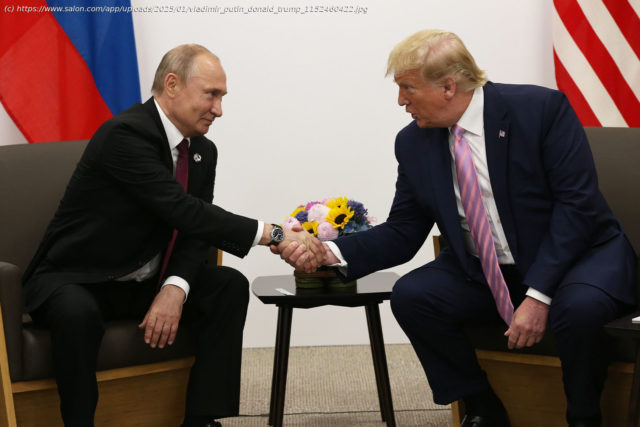A veteran diplomat explains the problems with Trump’s upcoming meeting with Putin.
A hastily arranged summit between President Donald Trump and Russian President Vladimir Putin is set for Aug. 15, 2025, in Alaska, where the two leaders will discuss a peace deal between Russia and Ukraine. Ukrainian President Volodymyr Zelenskyy will not attend, barring a last-minute change. The Conversation’s politics editor Naomi Schalit interviewed longtime diplomat Donald Heflin, now teaching at Tufts University’s Fletcher School, to get his perspective on the unconventional meeting and why it’s likely to produce, as he says, a photograph and a statement, but not a peace deal.
Wars end for three reasons. One is that both sides get exhausted and decide to make peace. The second, which is more common: One side gets exhausted and raises its hand and says, “Yeah, we’re ready to come to the peace table.”
And then the third is – we’ve seen this happen in the Mideast – outside forces like the U.S. or Europe come in and say, “That’s enough. We’re imposing our will from the outside. You guys stop this.”
What we’ve seen in the Russia-Ukraine situation is neither side has shown a real willingness to go to the conference table and give up territory.
So the fighting continues. And the role that Trump and his administration are playing right now is that third possibility, an outside power comes in and says, “Enough.”
Now you have to look at Russia. Russia is maybe a former superpower, but a power, and it’s got nuclear arms and it’s got a big army. This is not some small, Middle Eastern country that the United States can completely dominate. They’re nearly a peer. So can you really impose your will on them and get them to come to the conference table in seriousness if they don’t want to? I kind of doubt it.
The analogy a lot of people are using is the Munich Conference in 1938, where Great Britain met with Hitler’s Germany. I don’t like to make comparisons to Nazism or Hitler’s Germany. Those guys started World War II and perpetrated the Holocaust and killed 30 or 40 million people. It’s hard to compare anything to that.
But in diplomatic terms, we go back to 1938. Germany said, “Listen, we have all these German citizens living in this new country of Czechoslovakia.






